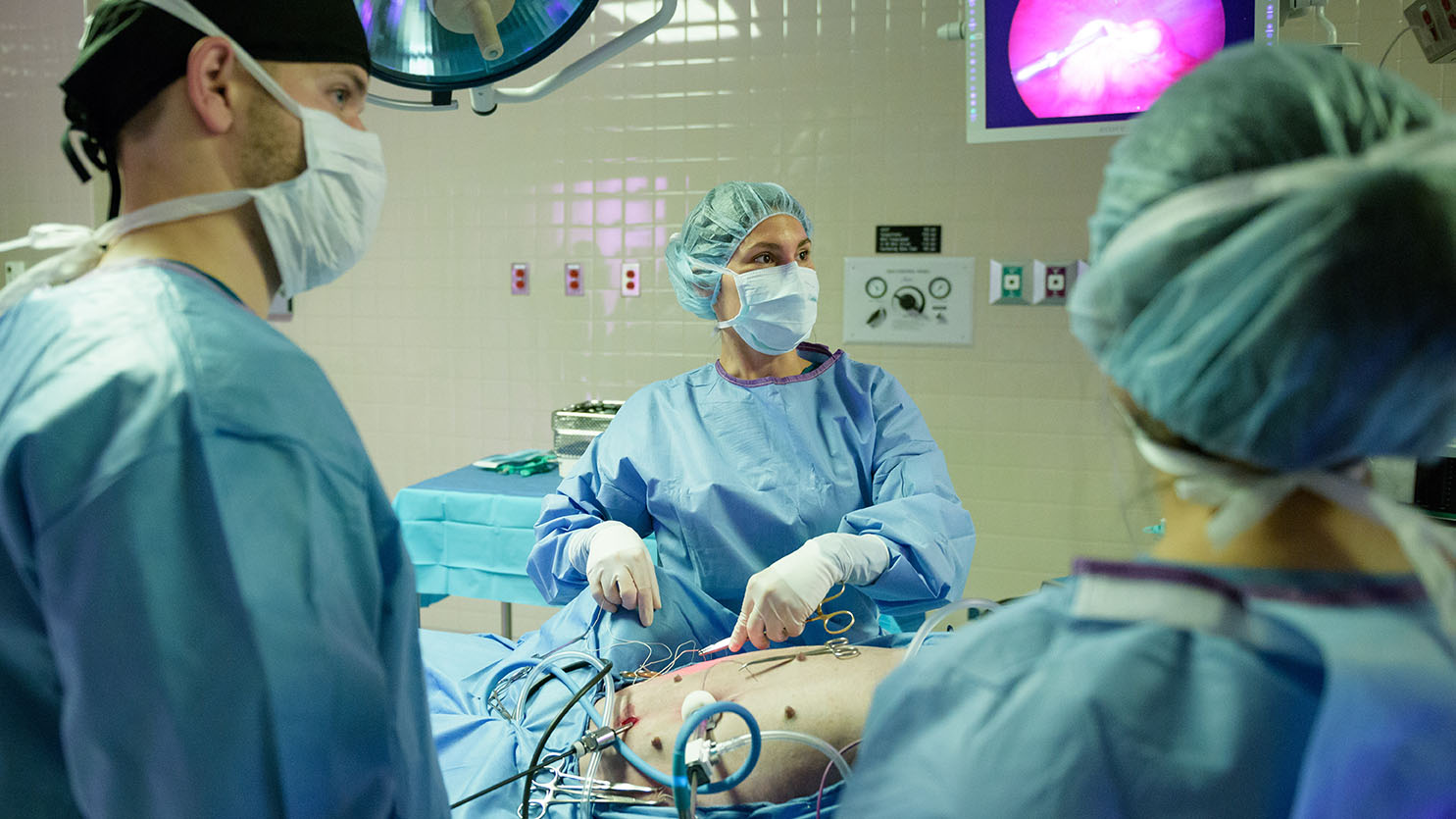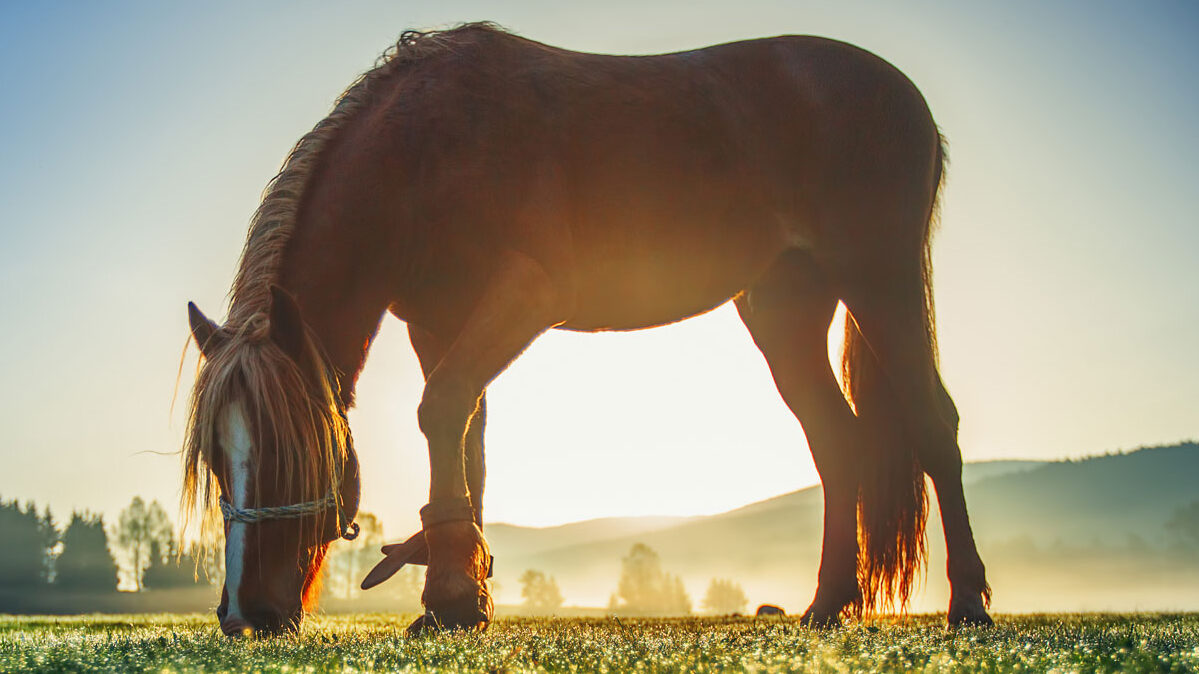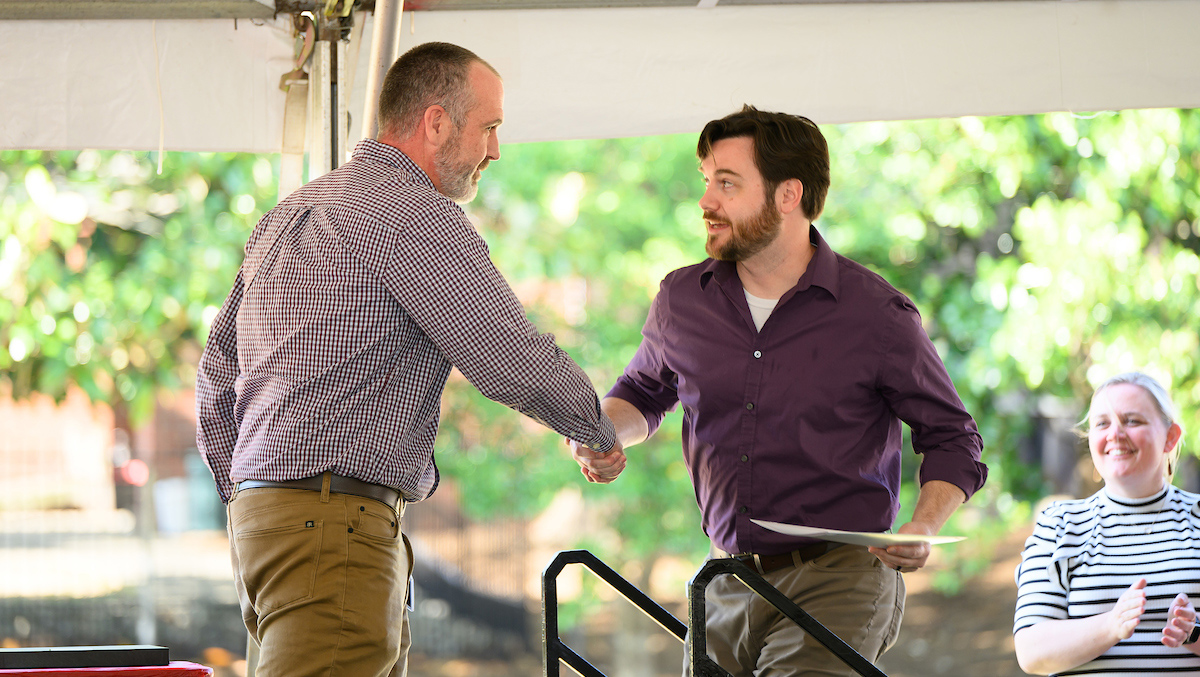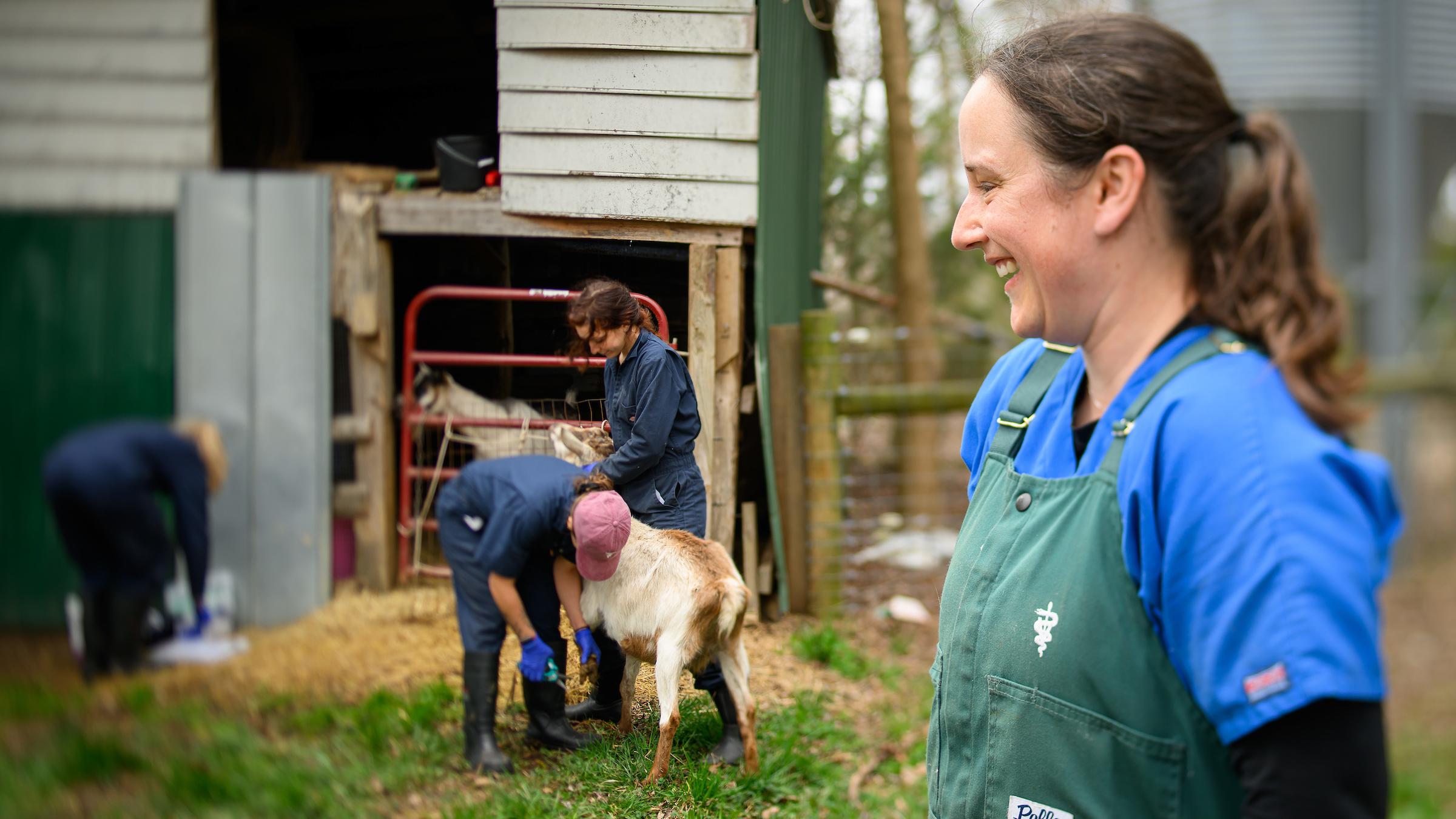New to the CVM Family: Meet Marine Traverson

For Marine Traverson, coming to North Carolina was like coming home. She grew up in France, about an hour from the Atlantic Ocean, and even though she’s lived in many different places, North Carolina immediately felt the most like Brittany and Nantes, her hometowns.
Traverson also enjoys NC State’s collegial atmosphere and the diversity and quality of care provided at the veterinary hospital. She joined the College of Veterinary Medicine in September as an assistant professor of soft tissue and oncologic surgery and is excited to collaborate with area universities to advance veterinary oncologic surgery, minimally invasive surgery and biomedical engineering.
What made you want to go into veterinary medicine?
Both of my parents are physicians and as a child I used to listen to their medical conversations and eagerly scroll through the pages of their medical journals. Interestingly, none of my four siblings decided to pursue a medical career. I always knew that I would be a surgeon, but I debated between practicing human and veterinary medicine. I enjoy working with both people and animals, and I really like that this position allows me to help both our veterinary patients and their families.
If I hadn’t become a veterinary surgeon, I would have been an artist. I like to express myself through my artistic creations, whether it’s music or painting, and that’s also what I love about my work as a surgeon: the opportunity to be creative and combine both intellectual and manual skills to deliver a personalized treatment.
What will you be doing in your new role?
I am a tenure-track faculty member, which means I work on clinics as a surgeon, teach our students, interns and residents, and collaborate in research. Those three aspects of my work make it incredibly varied and complete.
I love teaching. I love seeing the students’ progression from their first day at the CVM to their first steps on clinics to graduation. Having the opportunity to be a mentor and share my passion for surgery to our interns and residents is very rewarding.
What are you most excited about in your new role?
NC State has incredible collaborative research opportunities. It is a very rich and dynamic environment, with world-renowned experts in a wide range of medical and engineering fields. I love sharing ideas and collaborating with other specialists outside of the veterinary field to develop new strategies of treatment for our patients. I like the opportunity of being open to the care provided in human medicine to advance our knowledge and practice of veterinary surgery.
I am particularly excited about developing a new limb-sparing strategy for dogs affected with osteosarcoma. I have had a project in mind for a few years and I am eager to collaborate with colleagues in industrial and biomedical engineering on it.
What is your background?
I received my veterinary degree from Nantes-Atlantic College of Veterinary Medicine in France in 2012, then went on to complete a small animal rotating internship at the University of Montreal, followed by a surgery specialty internship at the DMV Veterinary Center in Montreal. I moved to the United States in 2014 to complete a three-year small animal surgery residency and combined master of science at Purdue University and decided to receive additional training in oncologic surgery through a one-year postdoctoral fellowship in surgical oncology at the University of Florida.
I am a diplomate of the American College of Veterinary Surgeons and a member of the Veterinary Society of Surgical Oncology. My goal has always been to become an oncologic surgeon. As a veterinary student, I had the chance to be involved in a translational research project that aimed to develop a novel bone cement for the healing of critical size defects. This project became the foundation of my veterinary thesis and gave me the opportunity to work with dogs and perform research that would be applicable for the treatment of bone cancer in people.
Around the same time, my younger sister was diagnosed with chondrosarcoma and received surgical treatment for her tumor. Since then, I’ve been committed to helping both veterinary patients and people affected by cancer through my clinical work and my research.
What’s something someone would be surprised to learn about you?
I like competitive and combat sports and used to play rugby in vet school. I stopped playing when I started my training as a surgeon since those two unfortunately don’t go hand-in-hand. I recently found consolation in jiu-jitsu.
When you’re not on campus, where could we find you?
I am a very active person and love the outdoors. I enjoy hiking, traveling or going out to dinner with friends.
Do you have any pets?
I have a cat named Napoleon. He’s Canadian. I adopted him when I was living in Montreal. I was working in a private practice where he came in as a rescue for surgery to remove a nasopharyngeal polyp. He was the most social cat I’d ever seen and had a very playful dog-like personality. I fell in love and he’s been my partner in crime ever since.
Visit the NC State Veterinary Hospital Soft Tissue and Oncologic Surgery Services page for more information about the treatment of soft tissue diseases and conditions in companion animals.
- Categories:


